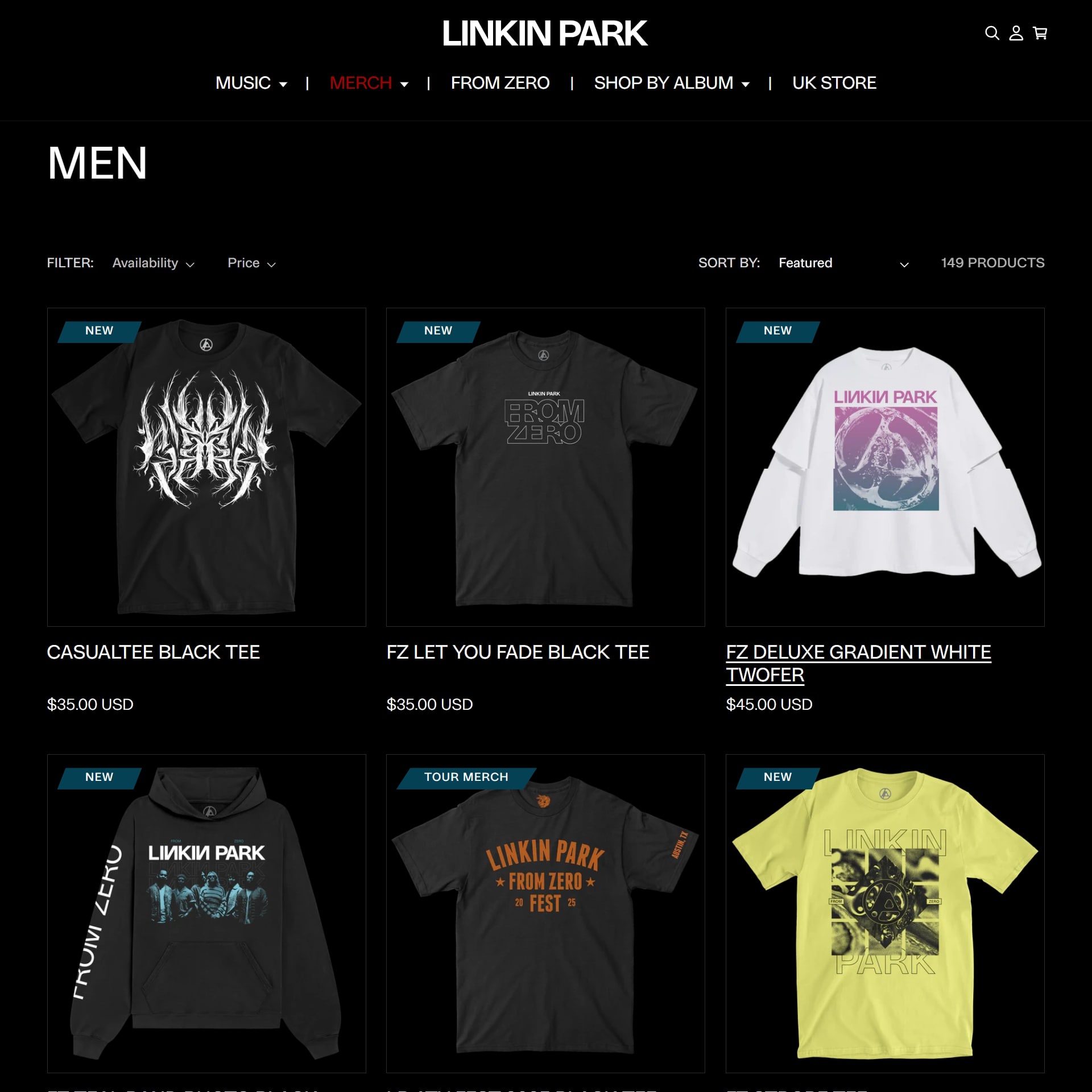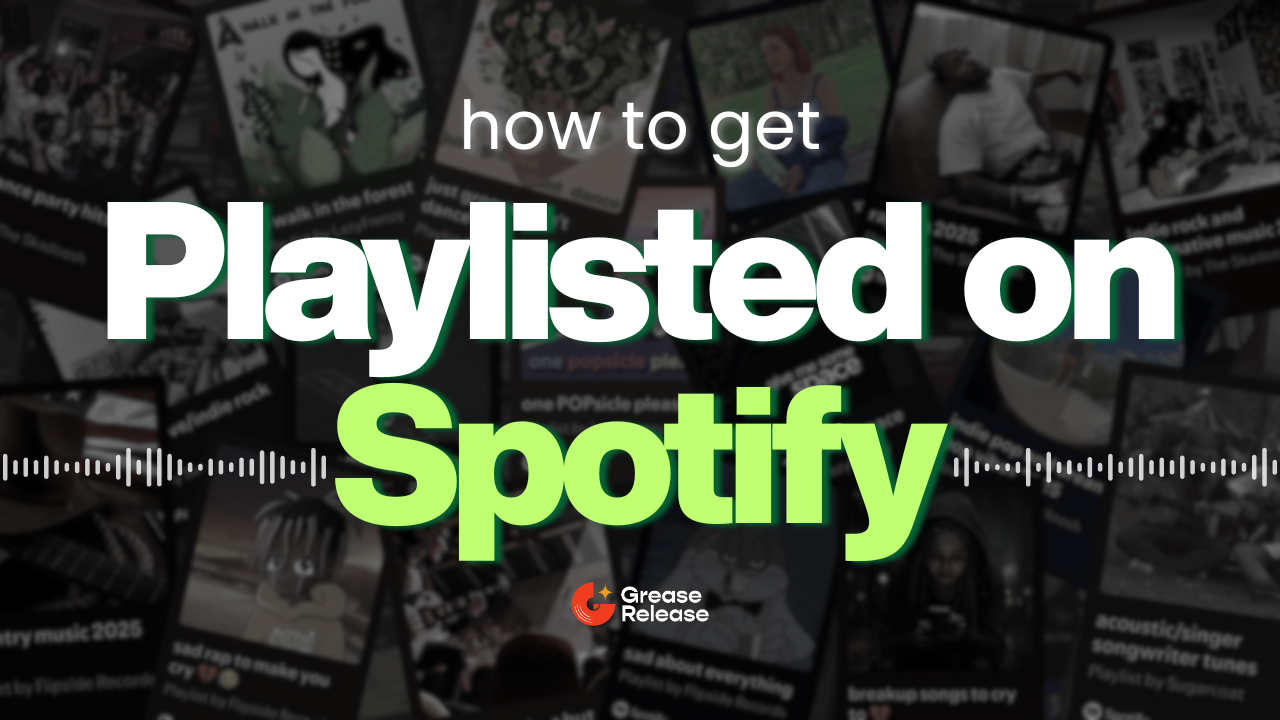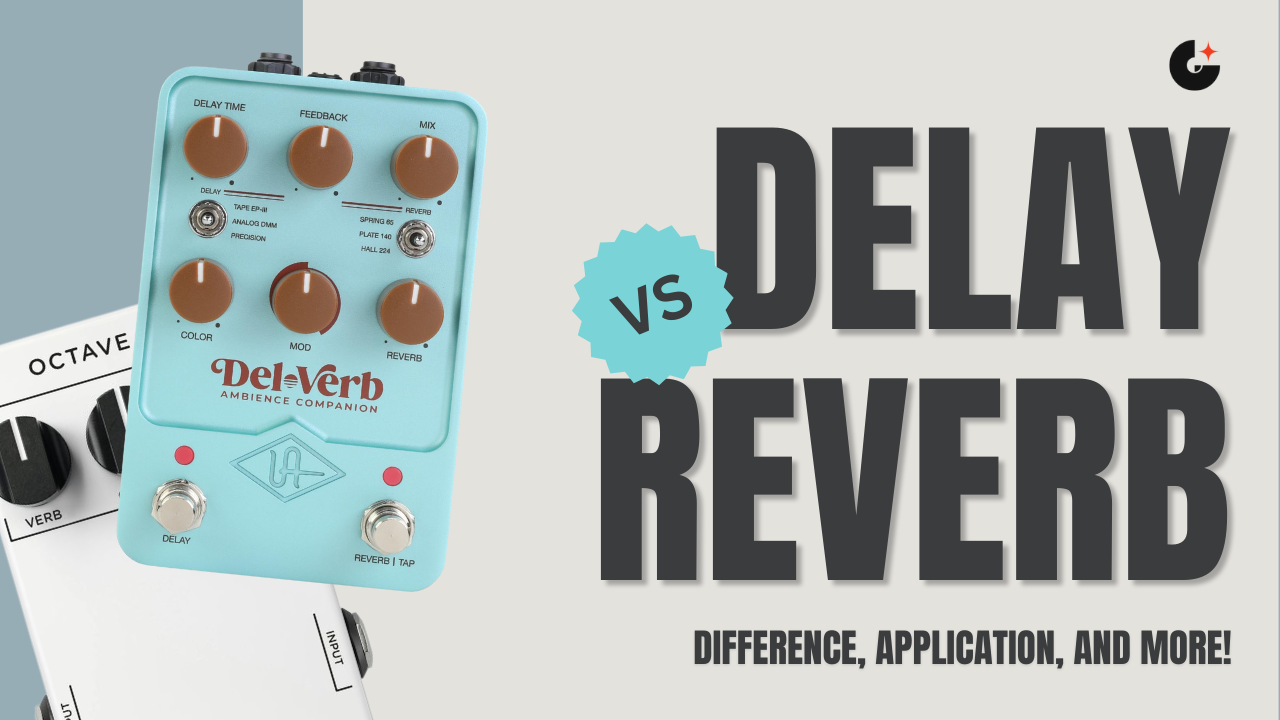
How to make money as a musician in 2026?
Aug 15, 2025How to make money as a musician in 2026?
If you’re a musician, and you’ve wondered how to make money in music, you need to start looking at music as more than just a passion — it's a business, especially if you want to earn an income from it. While this path can be challenging to navigate, you don’t have to wear the “struggling artist” badge forever.
With the right strategy and a willingness to diversify, you can have more ways than ever to turn your craft into a sustainable source of income. Whether you’re performing live shows, teaching lessons, licensing your music, or building a brand online, there are countless opportunities for making money from music and monetizing your talent.
In this guide, we’ll break down 7 practical and profitable ways to make money from music to take your career to the next level ~
- Live Performance Gigs
- Merchandise Sales
- Collect Live Performance Royalties
- Earn from Streaming Royalties
- Make Music for other Artists
- Brand Partnerships and Sponsorships
- Teach Music
- Final Thoughts
1. Live Performance Gigs
Live shows remain one of the top sources of income for working musicians. Performing at local venues, festivals, weddings, and corporate events can generate a consistent revenue stream. It’s a great way of making money as a musician. People continue to pay for real performances, and you can earn from ticket sales, on-the-door fees, or direct payment from promoters or venues.
How to get started:
- Network with venue owners and event planners
- Use gig platforms like GigSalad, Sonicbids, or Bandsintown
- Promote your performances on social media
- Offer different sets (acoustic, full band, DJ) to increase bookings
Now, this might not fit everyone’s creative style and goals, but it is definitely a very lucrative option to earn a good income. At the end of the day, you should pick what you’re comfortable with and what feels true to you as an artist.
Revenue sources:
- Ticket sales ($5–$15 typical for unsigned acts)
- Tiered pricing (e.g., $10, $20, $30 for student tickets, regular tickets and VIP tickets)
- Promoter or venue payment
- Door splits (for bands, independent artists or small-scale venues)
Build your reps in your niche and make sure to create an EPK while you’re at it to charge higher rates as you go. Just don’t forget to log your setlists to claim performance royalties later.
2. Merchandise Sales
Merchandise is one of the most direct and profitable income streams for musicians, especially when you’re building a loyal fanbase. Whether you’re selling T-shirts, hoodies, mugs, hats, or posters, merch gives fans a tangible way to support your music.
Why merch matters:
- Adds supplemental income at shows and online
- Helps fans feel more connected to your brand
- You can offer low- and high-ticket items (e.g. $5 stickers to $30 tees)
Pro tip: Design items using popular lyrics, artwork, or inside jokes for your fans to make it more relatable and exclusive within your community. A great design can sell even to new listeners.
3. Collect Live Performance Royalties
Did you know you can earn royalties every time you perform your original songs live? Well, yeah, if you're playing original music live, don’t miss out on performance royalties — it’s easy money, and most musicians forget to claim it.
How it works:
- Register your songs with a Performing Rights Organization (PRO) like ASCAP, BMI, or SESAC
- Submit your setlists after each live show via your PRO’s online portal
- The PRO collects royalties when your songs are performed at venues, festivals, bars — even house shows and pays out based on venue size and performance
This is money left on the table for many independent artists, so don’t skip it.
Pro tip: Get into the habit of submitting setlists monthly to stack up passive income from shows you’ve already played.
4. Earn from Streaming Royalties
Streaming is the largest revenue source in the global music industry. IFPI, in its Global Music Report, showed that the total streaming revenue in the music industry reached $29.6 billion in 2024. Spotify said it paid out $10 billion to the music industry in 2024, a new record high.
How it works:
- Use a digital distributor like DistroKid, Ditto, TuneCore, CD Baby, etc., to upload your music to platforms like Spotify, Apple Music, Tidal, and Amazon Music
- You earn mechanical royalties every time someone streams or downloads your track
- Use your distribution platform for collecting these royalties, too.
Pro Tip: Promote your releases consistently — the more plays you get, the more you earn. Over time, streams can snowball into steady passive income.
Why it matters:
- You only need to upload your song once
- It earns money forever, as long as it’s streamed
- It can lead to more revenue through fan growth, merch, ticket sales, and sync licensing
Tips to maximize streaming income:
- Release music consistently (singles, EPs, albums)
- Create engaging cover art and write keyword-rich descriptions
- Submit your tracks to editorial playlists
While payout rates are low (~$0.003 to $0.005 per stream), consistent releases and playlisting can build passive income over time.
5. Make Music for other Artists
Writing and producing music for other artists is a powerful way to turn your creative talent into a consistent income stream.
Opportunities include:
- Selling beats on platforms like BeatStars, Airbit, etc.
- Co-writing songs and sharing royalties
- Producing full tracks or demos for indie artists
Many producers earn passive income through beat licensing while building long-term collaborations.
Ways to earn:
- Upfront fees for your songwriting/music-production services
- Mechanical & performance royalties when songs are streamed, sold, or performed live
- Licensing fees if your songs are used in film, TV, or commercials
You can work independently or sign with a music publisher who can pitch your work to bigger artists and labels. Publishing deals may include an upfront advance, plus ongoing royalty payments — similar to a record deal.
6. Brand Partnerships and Sponsorships
While they’re not always easy to land, they’re more accessible than you might think, especially if you have a consistent presence online or on stage. As your audience grows, brands will pay for you to promote their products or services.
Common partnerships:
- Sponsored posts on Instagram, TikTok, or YouTube
- Exclusive music releases in partnership with a brand
- Playing branded events or creating theme songs
How to attract brands:
- Grow a niche audience
- Keep your brand professional and aligned
- Reach out via email or platforms like Famebit, Collabstr, etc.
Pro tip: Start by reaching out to brands that are within your niche and are also something you already like or use. These types of partnerships are more genuine and result in more fruitful outcomes for both parties.
7. Teach Music
This is one of the underrated answers to the question of how to make money in music. Teaching is one of the most dependable and rewarding ways to earn money as a musician. Whether you’re a vocalist, producer, songwriter, or instrumentalist, there’s always someone eager to learn your skills.
Ways to earn from teaching:
- Private 1:1 lessons (in person or over Zoom)
- Group workshops or masterclasses
- Pre-recorded online courses via platforms like Udemy, Skillshare, or Teachable
- Subscription-based content through Patreon or YouTube Memberships
Teaching gives you flexibility and the ability to monetize your expertise, even between gigs or releases. Plus, helping others grow musically is deeply fulfilling — and keeps your skills sharp. Start by building a basic website that includes your bio, lesson offerings, testimonials, and rates.
Pro tip: Start small by offering a few trial lessons. Then, scale your offerings into downloadable materials or online classes to reach a global audience.
Final Thoughts
There’s no single way to make money from music — the most successful artists often combine several of these income streams. To get started, pick maybe two or three of the strategies above that fit your strengths and your goals.
In the meantime, also keep your focus on building your brand and growing an audience for your income source. Make sure to be consistent and treat your music like a business, because that’s how you’re going to make money at the end of the day!
We at GreaseRelease, have a bunch of curators on our network who are looking for new & exciting music to push on their massive playlists. If you make music and want to reach a wider audience, check out our submission platform and get a chance to reach millions of listeners! Submit your tracks now!
Don't miss my newsletter!
Join me on a music entrepreneurship journey with new tips and tricks delivered straight to your inbox.
We hate SPAM. We will never sell your information, for any reason.




